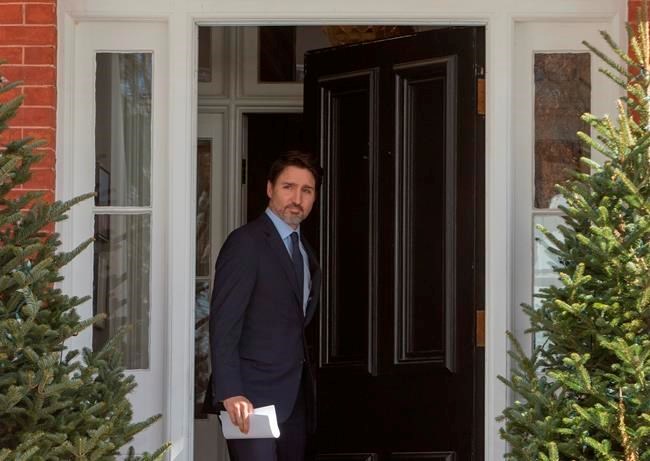OTTAWA — The federal government will discuss whether stricter border measures must be implemented to halt the spread of COVID-19 in Canada, Prime Minister Justin Trudeau said Sunday.
Thousands of Canadians abroad are now returning home, some doing so on the advice of the government, which said this weekend that people ought to return now or risk getting stuck as international flights begin to be cancelled and borders closed by countries seeking to inoculate themselves from further infection.
Among them, the U.S., where President Donald Trump has implemented travel bans to his country from Europe, creating chaos at U.S. airports that's also being seen in Canada.
RELATED: The latest numbers of COVID-19 cases in Canada as of March 15, 2020
Travellers have reported long lines at customs, with what appear to be minimal precautions being taken to slow the spread of the virus. The federal government is being questioned on why only those returning from known hot spots are being grilled about their health, when it is clear those hotspots are shifting daily.
The government has asked all those arriving in Canada to voluntarily self-isolate for 14 days.
Trudeau acknowledged Sunday that things are changing fast, but the early days of Canada's response were based on the best available science and that's an approach his government will continue to follow.
"We're going to continue trusting our public health officials," he told CTV's Question Period in an interview outside his home, where he and his family remain in self-isolation following his wife's diagnosis with the illness.
"But of course we are hearing the concerns people have had. The shift in posture from the United States of course gives us significant things to think about and we will be discussing it later today among other measures at our cabinet meeting."
RELATED: Return home while you can, Ottawa tells Canadians as COVID-19 continues to spread
Trudeau said many of those reporting they received minimal screening weren't arriving from areas of concern, and public health resources are best directed out into the community, not at airports.
He suggested however that changes are coming.
"That is in the process of happening, I've heard directly from our public security officials and CBSA who are bringing in new measures right now," Trudeau said, when asked about implementing mandatory screening for all, but did not provide further detail.
A spokesperson for Public Safety Minister Bill Blair was not immediately able to provide further comment.
The Opposition Conservatives have been calling for Trudeau to shut down the borders, and also to scale up the fiscal response his government is preparing to deal with the economic impact of the health crisis.
The Liberals had announced $1 billion worth of measures last week, but Trudeau said more will follow this week.
"Our focus is on making sure Canadians can come out the other side, that we can bridge our way across this with the support we need."
President of France Emmanuel Macron said all G-7 leaders will be holding a meeting to co-ordinate an economic response to the global COVID-19 pandemic this week as well.
Trudeau's wife Sophie was diagnosed with COVID-19 following a trip to the United Kingdom. He said she continues to recover and currently has a headache but it is not worse than a bad cold.
While other world leaders, including Trump, have been tested as a result of being in close contact with those who have the virus, Trudeau said the advice he has received is that the test would be wasted on him.
"The advice of our best public health experts is it's not worthwhile to test someone who is not showing symptoms, if it were to come back negative it wouldn't mean anything because I am in isolation right now and need to remain in isolation and that uses up a testing kit that would be better suited for someone who is showing symptoms who should be tested."
This report by The Canadian Press was first published March 15, 2020.
Stephanie Levitz, The Canadian Press



